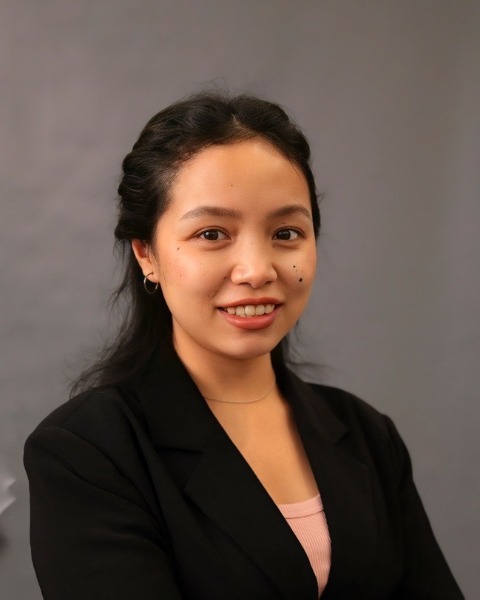Poster Presentation
Social Justice and Health Equity
Thursday Poster Power Hour
THURS-046 - Building Bridges to Health Equity: Empowering Refugee Women Through the Big Sisters Circle Project
Thursday, April 17, 2025
11:45 AM - 12:45 PM PST
Location: Pacific I/II, 2nd Floor
Area of Responsibility: Area VI: Communication
Subcompetencies: 6.2.1 Describe the intended outcome of the communication (e.g., raise awareness, advocacy, behavioral change, and risk communication)., 6.5.2 Use public speaking skills. 6.5.3 Use facilitation skills with large and/or small groups.
Research or Practice: Practice
Subcompetencies: 6.2.1 Describe the intended outcome of the communication (e.g., raise awareness, advocacy, behavioral change, and risk communication)., 6.5.2 Use public speaking skills. 6.5.3 Use facilitation skills with large and/or small groups.
Research or Practice: Practice

Meghna Lama, BDS (she/her/hers)
Student
UTHealth School of Public Health Houston
Houston, Texas, United States
Poster Presenter(s)
Learning Objectives:
At the end of this session, participants will be able to:
- Describe the program components and interprofessional collaborations that make a tailored, culturally sensitive women’s resource and support group successful.
- Evaluate the value of culturally sensitive activities to facilitate public health education, acculturation, and connection among refugee women.
- -
Detailed abstract description: The Big Sisters Circle project is an initiative aimed at addressing the health equity and socioeconomic needs of 24 recently resettled refugee women in Houston. Through collaborative efforts between medical and public health students, Amaanah Refugee Services, and the Albert Schweitzer Fellowship, this program addresses systemic inequities by offering culturally tailored health and socioeconomic support.
Using interactive, evidence-based exercises such as art therapy, journaling, and breathing techniques, the project focuses on building resilience and supporting mental wellness while addressing participants practical challenges. One example is the "Tree of Strength," where participants draw a tree with roots representing personal qualities they admire and leaves symbolizing activities that help them cope in difficult times. This exercise fosters shared experiences and strengthens personal resilience.
A critical component of the program is the culturally sensitive health education sessions, which cover fundamental aspects of women’s health, including well-woman exams, breast self-exams, and family planning. In recognition of the women’s diverse cultural and religious values, the program customizes these health discussions to ensure they are respectful and aligned with participants’ beliefs, helping them feel comfortable and engaged. Sessions on chronic disease prevention, diabetes, obesity, and nutrition are designed to equip participants with essential knowledge on food groups, reading nutrition labels, and making dietary choices for long-term health.
Beyond health education, the program integrates skill-building through role-play exercises to address real-life challenges. By practicing scenarios such as attending parent-teacher meetings, job interviews, and scheduling medical appointments with preferred healthcare providers, the participants gain confidence and essential skills for advocating for themselves in a new system. This, combined with reflective journaling, encourages the women to express their preferences and assert their needs - a crucial step in fostering self-efficacy and independence.
To further support social justice and health equity, the project connects participants with valuable resources, including information on federal programs like SNAP and Medicaid. By ensuring equitable access to essential resources, the project addresses systemic barriers that often leave refugee communities marginalized and underserved.
This presentation will offer attendees a comprehensive understanding of how culturally sensitive interventions and community-based collaboration can create impactful, justice-driven programs. The Big Sisters Circle project serves as a model for integrating social justice principles in health education and public health practice, offering attendees an adaptable framework for promoting mental wellness, health equity, and socioeconomic support in diverse and underserved communities.
